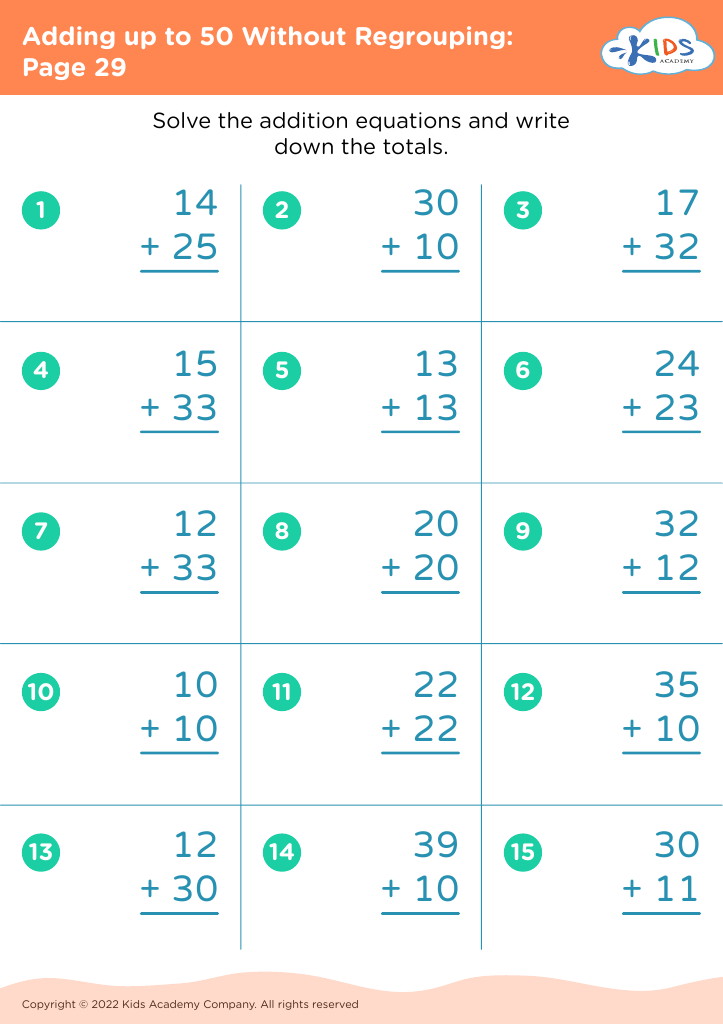Comparing objects Math Worksheets for Ages 6-9
6 filtered results
-
From - To
Discover our engaging "Comparing Objects Math Worksheets" designed specifically for children aged 6 to 9! These worksheets make learning fun and interactive by allowing young learners to explore differences in size, weight, and quantity through colorful illustrations and relatable objects. By using hands-on activities, children will develop essential comparison skills that enhance their math proficiency and critical thinking. Ideal for both classroom and home learning, these resources support early math development while making complex concepts easy to understand. Download now and watch your child gain confidence in their math abilities while having a great time comparing everyday objects!
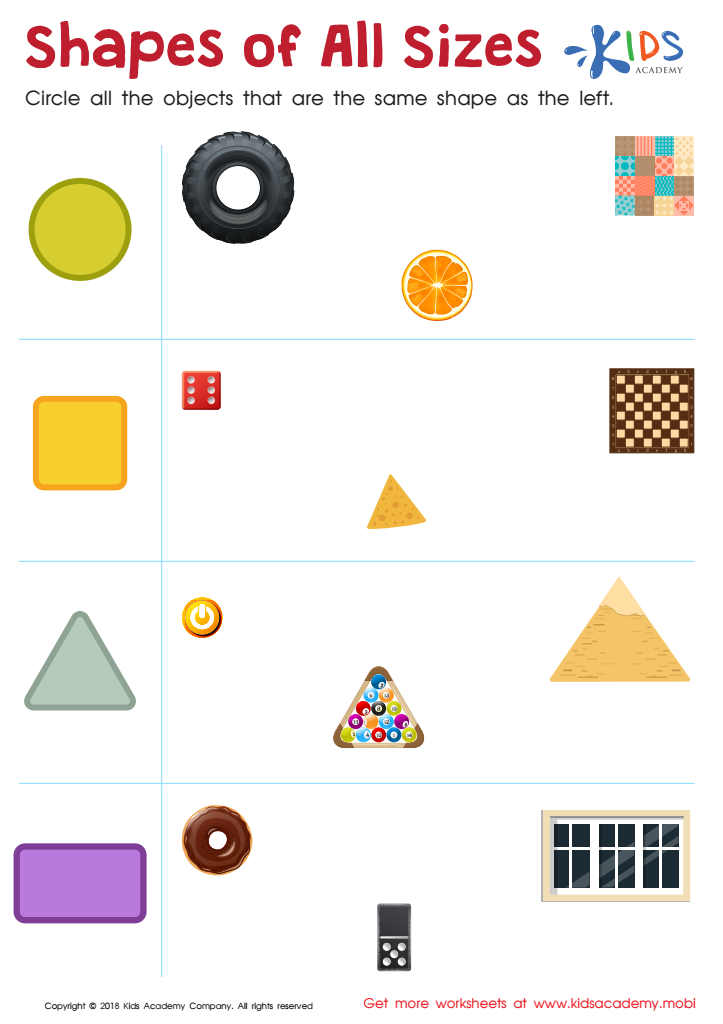

Shapes of All Sizes Worksheet
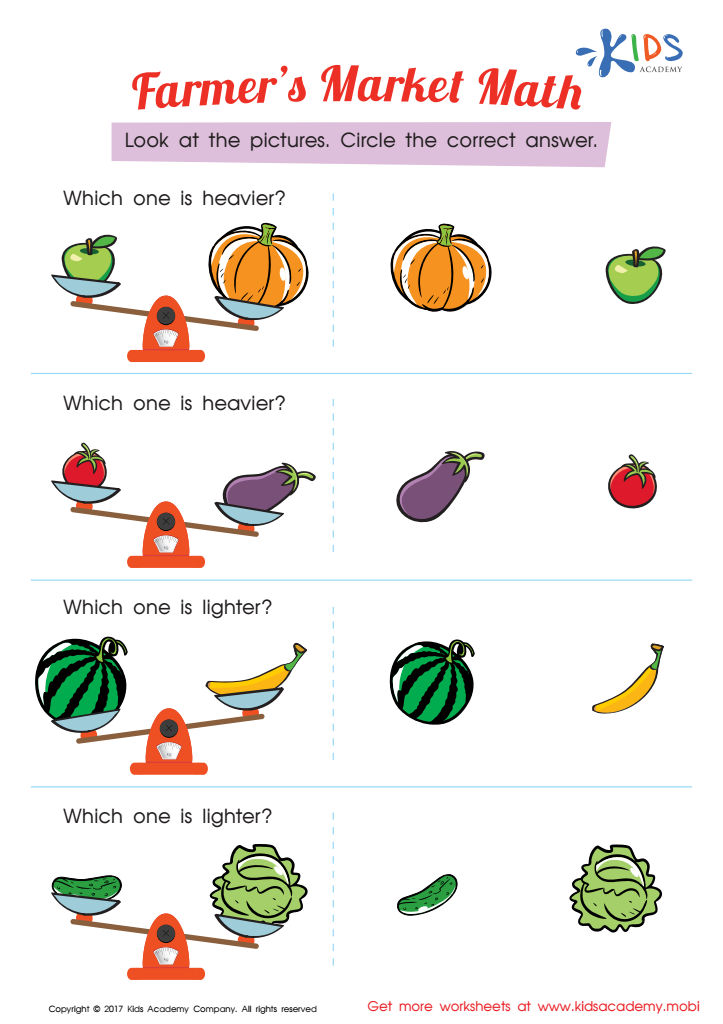

Which One Is Heavier Worksheet
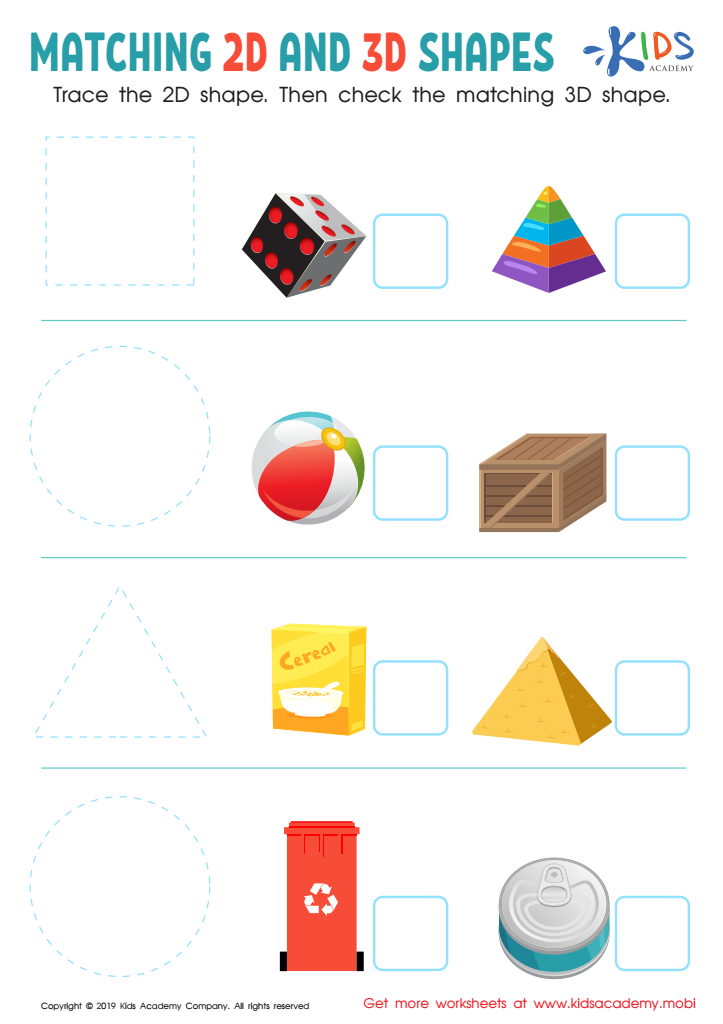

Matching 2D and 3D Shapes Worksheet
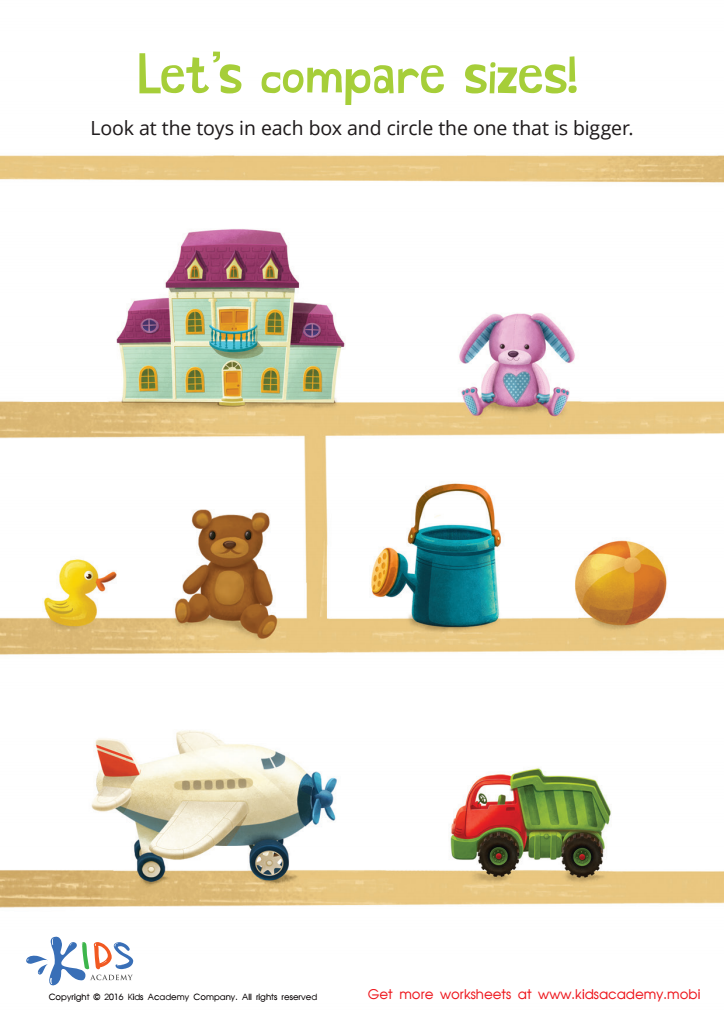

Classifying by Size Sorting Worksheet
Comparing objects is a fundamental math skill that significantly impacts the cognitive development of children aged 6 to 9. Understanding how to compare sizes, weights, lengths, and quantities helps kids develop critical thinking and problem-solving abilities. At this age, children are naturally curious and eager to explore their surroundings, making it an ideal time to introduce comparison concepts.
Learning to compare objects fosters essential mathematical skills, such as understanding measurement and basic arithmetic. Parents and teachers who prioritize these comparisons enable children to grasp more complex mathematical ideas in the future. Additionally, comparing objects assists children in building vocabulary, as they learn terms like "larger than," "smaller than," "heavier," and "lighter."
Moreover, comparison activities make learning engaging and hands-on, allowing children to work in collaborative settings where they communicate their thoughts, develop social skills, and enhance their teamwork capabilities.
By emphasizing the importance of comparing objects through fun games and activities, parents and teachers can create a solid foundation for children's mathematical understanding, boosting confidence and fostering a love of learning. Ultimately, these skills not only equip children for academic success but also provide valuable tools for everyday decision-making and logical reasoning in later life.


 Assign to My Students
Assign to My Students
